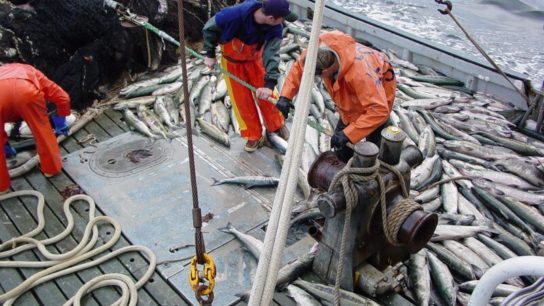Yemen, a country already plagued by a protracted civil war and humanitarian crisis, now faces another major environmental challenge – a potentially catastrophic oil spill. As conflicts continue to ravage the region, the United Nations has stepped in to mitigate the devastating effects of the spill and prevent further harm to Yemen’s delicate ecosystems and the livelihoods of its people. This article explores the UN’s efforts in dealing with this environmental crisis and highlights the importance of international cooperation in addressing such incidents.
—
Aa Potentially ‘Catastrophic’ Oil Spill in Yemen
The potential oil spill off the coast of Yemen has raised concerns among experts and environmentalists due to the presence of the decaying supertanker, FSO Safer. This massive vessel, which has been left abandoned and deteriorating, poses a grave threat to Yemen’s delicate marine ecosystems and the livelihoods of coastal communities that depend on them.
The FSO Safer, originally used to store and transport oil, currently holds more than one million barrels of crude oil. This volume is approximately four times larger than the infamous Exxon Valdez oil spill in Alaska, USA, in 1989. The tanker has been stationary off the coast of Yemen since 2015, following the escalation of the country’s civil war, which led to the abandonment of the vessel. This staggering amount of oil poses a significant threat to Yemen’s delicate marine ecosystems and the livelihoods of coastal communities that depend on them.
Experts have described the FSO Safer as an ecological time bomb that could explode or disintegrate at any moment. The tanker has been deteriorating for years, largely due to the protracted conflict in Yemen, which has left it isolated and poorly maintained. The precarious condition of the vessel is now raising concerns about its stability, heightening the risk of a potential oil spill that could have severe and far-reaching consequences.
If an oil spill were to occur, it would ravage marine life in the surrounding area. The delicate balance of ecosystems would be disrupted, leading to the loss of valuable species and habitats. Moreover, the spill would have a direct and devastating impact on the fishermen and coastal communities that rely on these resources for their livelihoods. Among the communities most at risk is the town of Khokha, located in Yemen. Khokha is a coastal town situated in close proximity to the deteriorating supertanker, FSO Safer. Its geographical location makes it particularly vulnerable to the potential effects of the oil spill. With an estimated 10,000 fishermen in the town of Khokha alone, the spill could result in widespread unemployment and economic hardship for these individuals and their families.
The consequences of an oil spill would extend beyond the immediate environmental and socioeconomic impacts. The cleanup cost alone is estimated at $20 billion, and disruptions to shipping through the Bab al-Mandab strait, situated between Yemen and Djibouti, is strategically important for maritime trade, and any blockage or delays could have far-reaching economic repercussions. To understand the gravity of this risk, we can look back at the Ever Given incident in March 2021. The Ever Given, a massive container ship, ran aground and blocked the Suez Canal, one of the world’s busiest waterways. The consequences were felt globally, as the canal serves as a crucial maritime route connecting the Mediterranean Sea to the Red Sea and the Indian Ocean. The incident led to a massive backlog of ships waiting to transit through the canal, causing delays and substantial increases in shipping costs for goods traveling between Europe and Asia. Similar disruptions in the Bab al-Mandab strait, caused by an oil spill from the decaying FSO Safer, could result in daily losses of billions of dollars in global trade.
Yemen’s already strained ports, crucial for the delivery of humanitarian aid, would face further disruption, exacerbating the existing humanitarian crisis in the country. Additionally, the closure of desalination plants due to contamination from the spill would deprive millions of people of access to clean drinking water, compounding the challenges faced by the population.
The potential spill also carries regional and global implications. Damage to coral reefs along Saudi Arabia’s Red Sea coastline would hamper the country’s plans for developing luxury tourism, impacting its economy and future prospects. Furthermore, the proximity of the tanker to key shipping lanes raises concerns about possible disruptions to global trade, affecting international commerce and supply chains.
UN Response and Actions
In response to the urgency and severity of the potential oil spill in Yemen’s Red Sea, the United Nations has undertaken a critical operation to prevent a catastrophic disaster.
In December 2021, the UN put forward a plan to prevent a spill by transferring the oil to a safe vessel and establishing long-term replacement capacity for the Safer was endorsed by the United Nations senior management. The implementation of this plan by the UN Development Programme (UNDP) has been contingent on funding. The UN has leveraged expertise from its system, external contractors, partners, and experts to prepare for this unprecedented effort.
The salvage support vessel Ndeavor, operated by lead marine salvage company SMIT, has arrived at the site of the decaying FSO Safer supertanker off Yemen’s Ras Issa peninsula on May 31, 2023. This operation aims to remove more than one million barrels of oil from the tanker to avert an environmental and humanitarian crisis.
The Ndeavor’s crew of experts was inspecting the Safer and carrying out necessary measures to ensure its security during the oil transfer to the replacement tanker, Nautica. This milestone marks the culmination of extensive political groundwork, fundraising, and project development led by UN Resident and Humanitarian Coordinator for Yemen, David Gressly, who was present aboard the Ndeavor.
Recognising the vital role of local engagement, comprehensive training and capacity-building support are being provided to Yemeni authorities, responders, and local communities. The initiative aims to equip them with the necessary skills, knowledge, and resources to empower local stakeholders and enhance their preparedness in handling similar environmental crises in the future.
Addressing the Complexities
Addressing the challenges associated with the FSO Safer has been a complex task. The protracted war in Yemen has turned the port city of Hudaydah into a battleground, impeding progress in salvaging the tanker. Disputes over the ownership of the oil and potential revenue have also complicated efforts to address the situation.
Negotiations between Saudi Arabia and the Houthi rebels, who control the area where the tanker is moored, have shown promising progress. This development has fostered understanding and cooperation regarding the FSO Safer.
However, obstacles remain. Bureaucratic procedures within the UN have slowed down progress, and insufficient funding remains a significant challenge. The UN launched a crowdfunding campaign to bridge the funding gap, but it is still $29 million short of the required amount. The organisation continues to call upon the international community and corporations to contribute and support the operation.
While preparations for the oil transfer are underway and the timing depends on the inspection results, discussions are ongoing regarding the handling of the oil once it is transferred to the seaworthy tanker. Potential agreements may include partial sales of the oil to invest in repairing Yemen’s infrastructure, considering the desperate situation in the country.
As the UN takes charge of this critical situation, its primary focus is to mitigate the imminent threat and protect Yemen’s coastal communities, marine ecosystems, and vital resources. Through coordinated efforts, adequate funding, and international cooperation, the UN aims to prevent a catastrophic oil spill and alleviate the potential environmental, humanitarian, and economic consequences that would arise from the disintegration or explosion of the FSO Safer.
You might also like: How Do Oil Spills Affect the Environment?


















